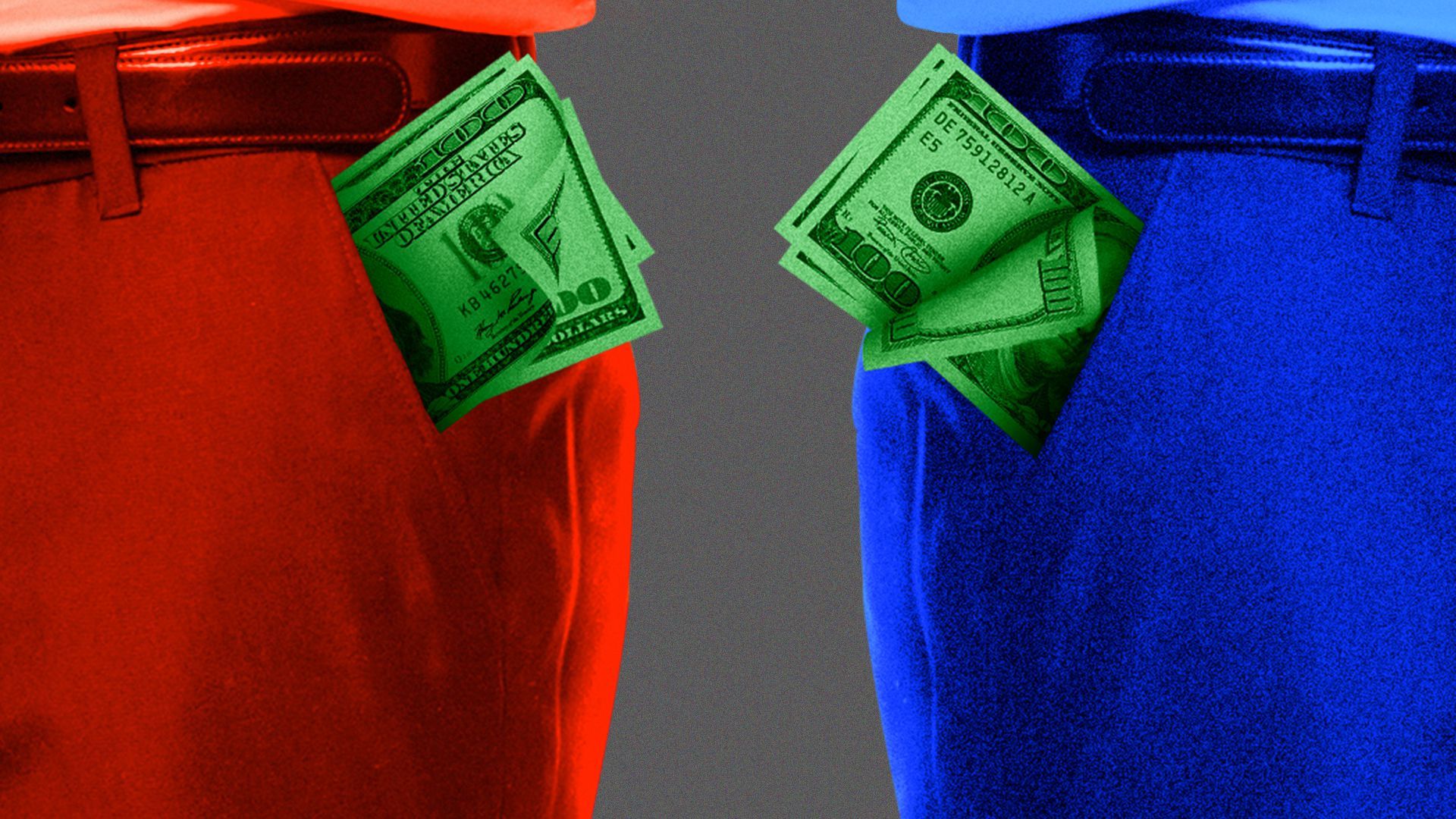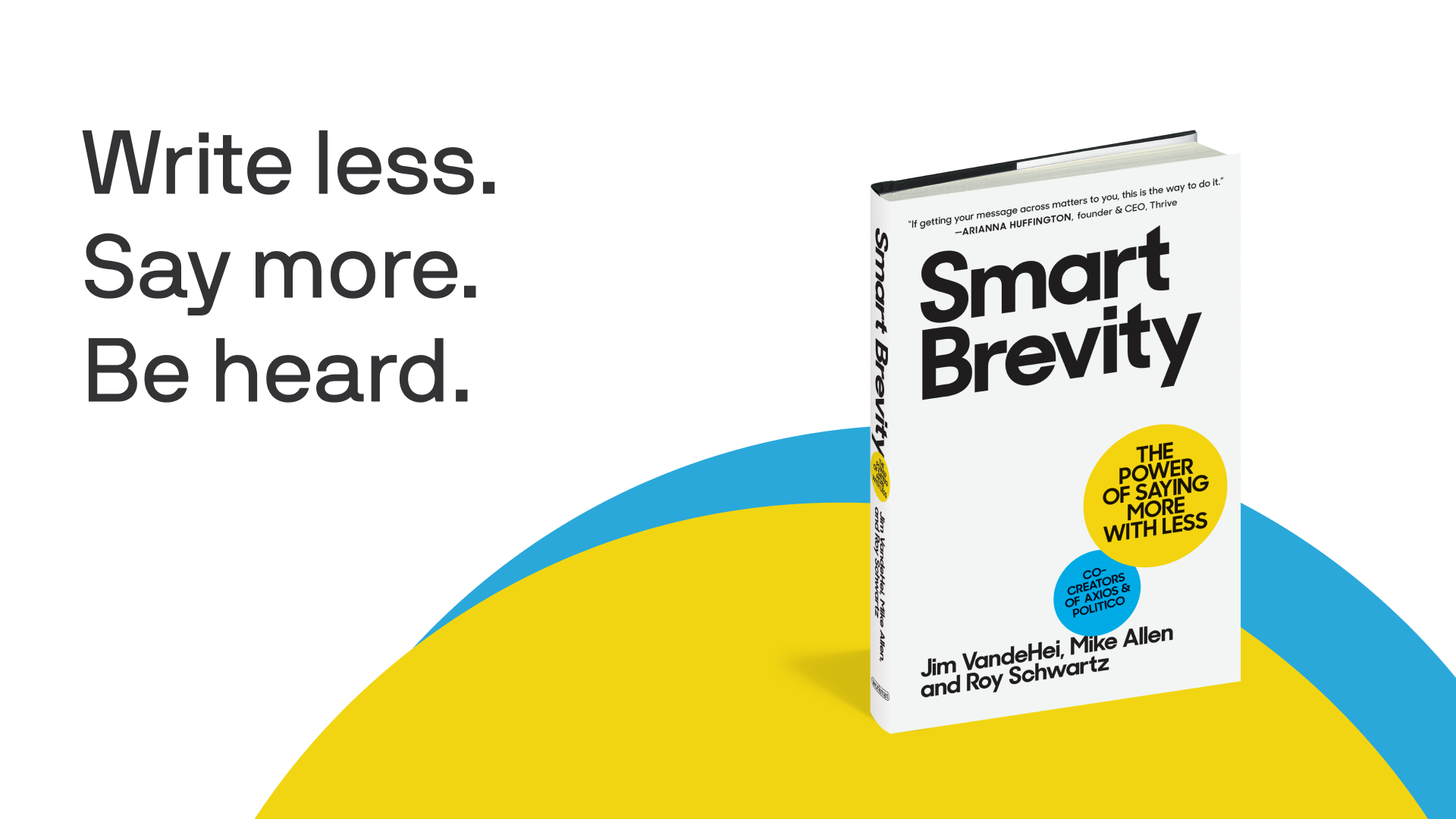| | | | | | | | | | | Axios Markets | | By Felix Salmon · Sep 17, 2022 | | I have actionable content for you this week, at least if you're a billionaire looking to offload your company without paying taxes. Also: ESOPs, six-figure salaries, the Queen, and more. All in 1,294 words, a 5-minute read. | | | | | | 1 big thing: The ultimate billionaire tax dodge |  | | | Illustration: Shoshana Gordon/Axios | | | | Entrepreneurs tend to hate paying taxes, and they love supporting pet causes. Now it's becoming clearer how they can pass entire billion-dollar companies through a charitable loophole. Why it matters: The tax code has incentives for owners to give their companies to non-profits. For the time being, such transactions remain relatively rare — but they seem certain to accelerate. Driving the news: In the past year, at least two billion-dollar companies have been donated to obscure 501(c)(4) nonprofits — Tripp Lite, which makes electrical devices, and then, this week, Patagonia, which makes outdoor gear. - In both cases, the founders avoided paying any kind of capital gains or income tax on billions of dollars of value that they controlled and helped to create.
- They also avoided paying gift tax — the tax that is normally payable whenever anybody makes gifts exceeding a lifetime limit of $12 million.
Details: Tripp Lite was donated by its founder, Barre Seid, to a group called the Marble Freedom Trust that immediately sold the company to Eaton Corporation for $1.6 billion, in a series of transactions documented by ProPublica and the NYT. - Patagonia was donated by its founder, Yvon Chouinard, to an entity he founded called the Holdfast Collective, designed to receive and spend the company's profits in perpetuity.
- Neither Marble Freedom Trust nor Holdfast Collective will ever pay any taxes on the billions they receive from Tripp Lite and Patagonia respectively.
How it works: The richest people in America tend to get that way not by earning money but by owning very large stakes in companies. When those stakes rise in value, no tax is payable unless and until they are sold. - If the stake is not sold at all but instead is given away charitably, then no tax is payable ever. Warren Buffett, for instance, has donated some $33 billion in Berkshire Hathaway shares to the Gates Foundation — shares that would generate billions of dollars in capital gains tax if he sold them himself, but that are not taxable when they're first donated to a nonprofit and then sold.
The big picture: Hundreds of billionaires have signed the Giving Pledge, promising to give most of their wealth to charity. Until recently, it's been very unclear how that is likely to work, in practice. But now there are models that can be replicated. - Mike Bloomberg, for instance, one of the signatories, could create a 501(c)(4) organization, working hand-in-hand with the existing Bloomberg Philanthropies, and donate Bloomberg LP to it, much as Chouinard did with Patagonia.
- Even 501(c)(3) organizations are now allowed to own for-profit companies, under what's known as The Newman's Own Exception.
The bottom line: Patagonia and Tripp Lite will continue to pay corporate income taxes, unlike the many hospitals and universities that are run as businesses and control billions of dollars but that bask in tax-exempt status. But the U.S. government will never get a take of any of their massive decades-long increase in value. |     | | | | | | 2 big things: America's newest deep-pocketed lobbyists |  | | | Illustration: Victoria Ellis/Axios | | | | The fortunate recipients of Seid's and Chouinard's largesse are 501(c)(4)s — a set of organizations often known as dark-money groups. Unlike the more common 501(c)(3)s, 501(c)(4)s can get involved directly in electoral politics, giving money to candidates and campaigning for or against them. Why it matters: Marble Freedom Trust and Holdfast Collective are at opposite ends of the political spectrum, but have similarly outsized ambitions. - Marble Freedom Trust is run by Leonard Leo, who helped to construct the Supreme Court's 6-3 conservative supermajority as Donald Trump's adviser on judicial nominations. It's expected to "supercharge efforts to further shift American politics to the right," per ProPublica.
- Details are scarce for who is running Holdfast Collective, but Axios Pro's Megan Hernbroth reports that it "could remake the climate philanthropy space for decades."
Between the lines: Both U.S. entrepreneurs were able to choose or even found nonprofits that were entirely aligned with their own visions. For the foreseeable future, the money will get spent in exactly the way that the billionaires wanted it to be spent. Be smart: While Marble Freedom Trust is the more explicitly political of the two, the only way that Holdfast is going to be able to achieve its goals is by getting governments on board. Both organizations are ultimately in the business of spending money to try to bend democratic institutions to their will. |     | | | | | | 3. The ESOP alternative |  | | | Illustration: Sarah Grillo/Axios | | | | If you don't want to give your company away to a political lobbying group, one alternative is to sell it to its employees — and specifically to sell it to an Employee Stock Ownership Plan, or ESOP. How it works: "Employee ownership combines the capitalist motives of profit and private ownership with a populist desire for workers to share in the wealth they help create," writes Ron Wirtz of the Minneapolis Fed, who also details "compelling" tax advantages of such schemes, most notably the ability of entrepreneurs to defer or even avoid paying capital gains taxes on the sale. Driving the news: New York City's beloved Astor Wines has been sold to its employees in such a manner. - An ESOP is a form of retirement plan, and the plan's trustee was chosen not by Astor Wines founder Andy Fisher but by the employees. In turn the trustee hired an appraiser to come up with a fair price for the company; Fisher and his brother — the sellers — will be paid that price out of corporate profits over the coming years.
The big picture: ESOPs are not nearly as popular as their tax advantages might suggest — only a couple hundred are formed each year. They're complicated to set up, and often bankers don't even suggest them to founders looking to sell. When they come together, however, they can work very well. - What they're saying: "ESOPs have tended to perform better than their non-ESOP counterparts," Astor's Fisher tells Axios. "I am not bittersweet — I am thrilled and energized."
What's next: A 20% off sale on all red wine is taking place on Wednesday. |     | | | | | | A message from Axios | | Axios Smart Brevity book | | |  | | | | Punch through the noise to get people to pay attention with Axios' new book, Smart Brevity. - Learn the secrets for transforming your communication.
Preorder today for a chance to attend a Smart Brevity workshop with Axios' co-founders. | | | | | | 4. The rise of the six-figure salary |  Data: U.S. Census; Chart: Kavya Beheraj/Axios If you worked full-time for all of 2021, there's a 24% chance you made more than $100,000, according to new data from the Census Bureau. - For men, that number is 25%; for Asian men it's 41%. On the other hand, the number for Black women is just 11%.
Our thought bubble, from Axios' Emily Peck: The gap between men and women is eye-popping but not surprising. - Men start out-earning women fairly early on in their careers, and the gap widens when motherhood arrives. Plus, wage gaps are the widest for the highest earners. Professionals who need more flexibility — often mothers — wind up earning less money.
|     | | |  | | | | If you like this newsletter, your friends may, too! Refer your friends and get free Axios swag when they sign up. | | | | | | | | 5. The royal recession |  | | | Photo: Chris J. Ratcliffe/Bloomberg via Getty Images | | | | And you thought Platty Joobs was bad. What's happening: Britain is taking the day off on Monday; an official holiday has been declared for the day of the state funeral of Queen Elizabeth II. Even McDonald's is closing its restaurants. Why it matters: Second-quarter GDP fell in the UK, thanks in part to the Queen's Platinum Jubilee celebrations. - That would normally make it easier for third-quarter GDP to show a quarter-on-quarter rise, but now the Queen's death has raised the specter that she'll be responsible for two successive quarters of negative growth. Which is to say, a recession.
|     | | | | | | 6. Building of the week: Ingalls skating rink, Yale |  | | | Photo: Richard Schulman | | | | David S. Ingalls and his son David S. Ingalls Jr. both went to Yale and were both captains of its hockey team. When they decided that their college needed a new hockey rink, they commissioned Eero Saarinen to design it. - Known as the "Yale whale" after its humpbacked roof, the rink hosted its first game in 1958. A major renovation took place in 2010.
|     | | | | | | A message from Axios | | Axios Smart Brevity book | | |  | | | | Punch through the noise to get people to pay attention with Axios' new book, Smart Brevity. - Learn the secrets for transforming your communication.
Preorder today for a chance to attend a Smart Brevity workshop with Axios' co-founders. | | | | Thanks to Kate Marino for editing and Elizabeth Black for copy editing this newsletter. |  | | Why stop here? Let's go Pro. | | | | | | Axios thanks our partners for supporting our newsletters. If you're interested in advertising, learn more here.
Sponsorship has no influence on editorial content. Axios, 3100 Clarendon Blvd, Arlington VA 22201 | | | You received this email because you signed up for newsletters from Axios.
Change your preferences or unsubscribe here. | | | Was this email forwarded to you?
Sign up now to get Axios in your inbox. | | | | Follow Axios on social media:    | | | | | |














No comments:
Post a Comment